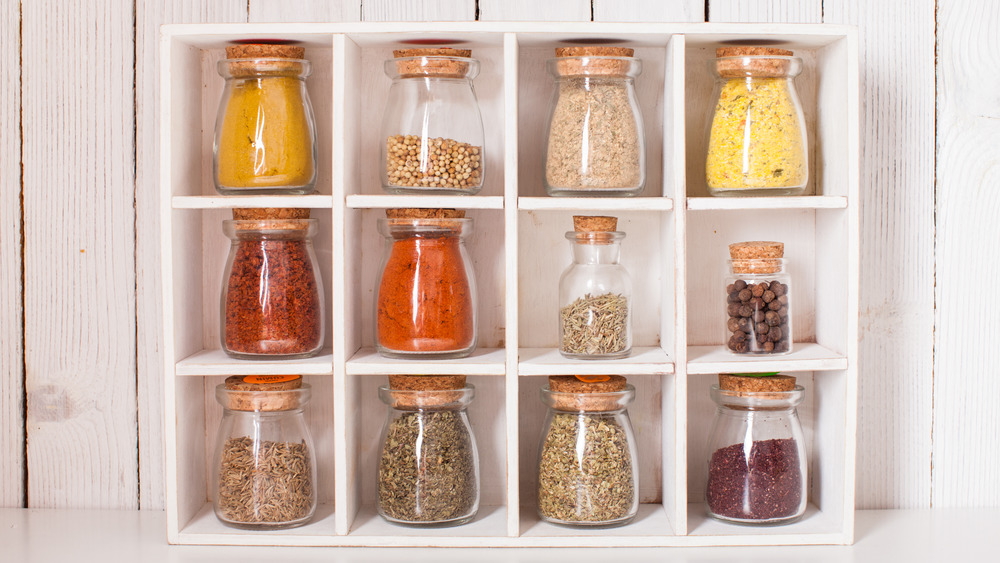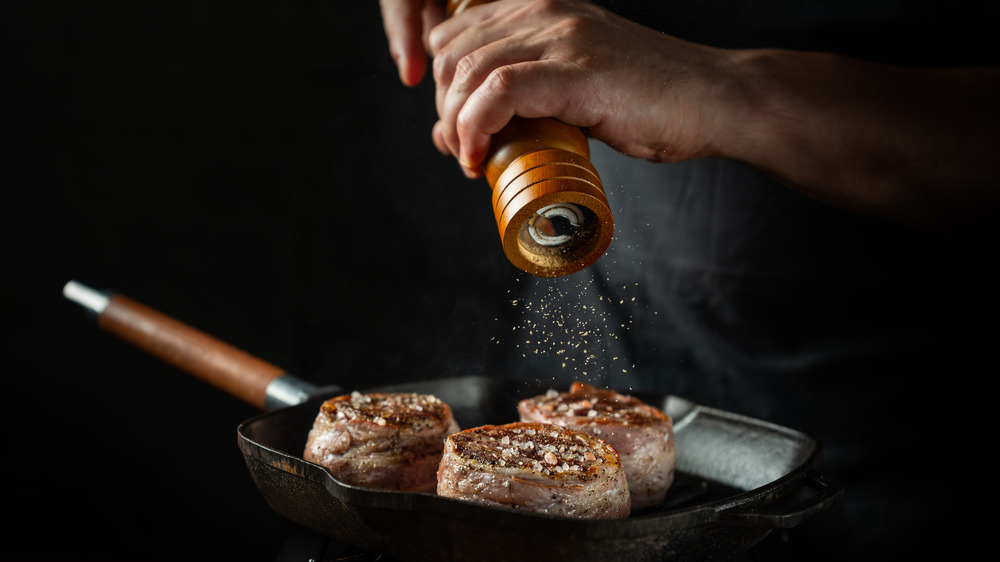What It Really Means When Spices Expire
If you were to guess how long that jar of ground coriander has been sitting in your spice cabinet, what would you say? Six months? Two years? Or would you think "What jar of coriander?" If the answer is the latter, you're not alone. Most of us have a back-of-cupboard collection of hardly-used spice jars that collect dust between Thanksgivings, when they are pulled out for their rare chance to shine in grandma's famous dressing recipe. When a spice is used once per year, a half-teaspoon at a time, it's likely to last until retirement. But should you keep it that long? Do spices actually expire?
The good news is that herbs and spices don't go bad in the same way that cottage cheese or bananas do. Eating a mouthful of long-expired spice is unlikely to do you any harm. But it won't taste like much, either. Over time, herbs and spices go bland instead of bad. They gradually degrade, losing the potency of aroma, flavor, and color, which defeats the main purpose of using them to season food.
How long are they actually at their prime? There's some disagreement on this point in the culinary world. Chef Jennifer Kushnier told LIVESTRONG, "The good old rule of thumb for replacing your spices is one year." But that timeframe varies wildly depending on the type of herb or spice, and the method of processing and storage.
Whole spices stay fresh longer than ground
In general, spices, which come from the roots, bark, or stem of plants, will last longer than herbs, at up to four years. Herbs, which come from the leaves of plants, generally last one to three years (via Healthline). Whole spices, like cloves, peppercorns, mustard seed, and dried chili peppers, will last longer than their ground counterparts.
Storage also makes a big difference. Spices should be stored in air-tight, non-porous containers, away from heat, light, and moisture. Even though having glass spice jars displayed on a shelf above the stove may look nice, it's not the best option for keeping those spices fresh. Kushnier adds, "Heat and steam also affect the quality of your spices. When you shake them directly over a cooking pot, heat and steam can get in there, potentially compromising the quality." Instead, scoop them out with a spoon or onto your hand before adding them to the pot.
When it comes to spices, "best by" dates only provide a general guideline. Using your own senses will give a better picture of whether the spice is usable. If it smells and tastes bland, replace it, regardless of the date on the jar.


